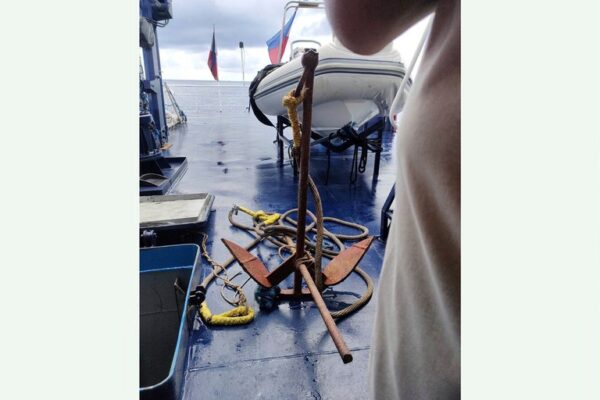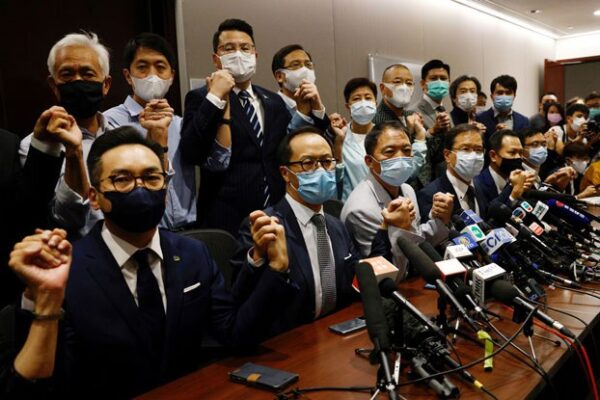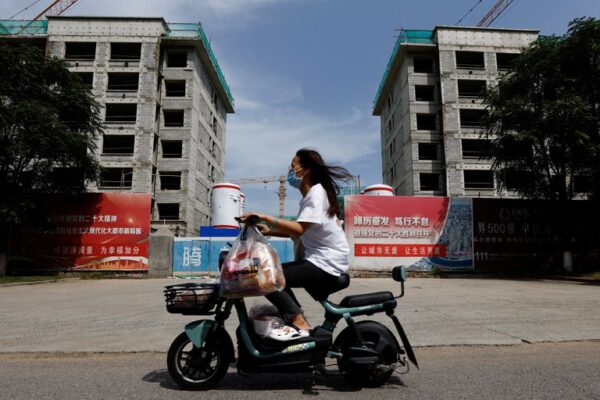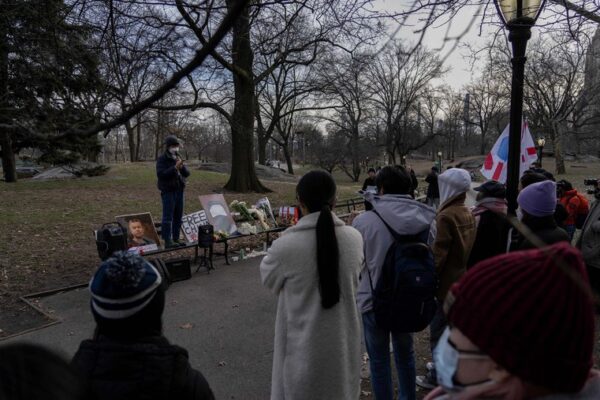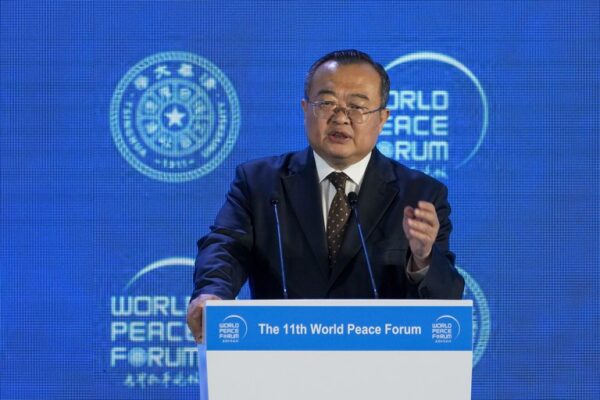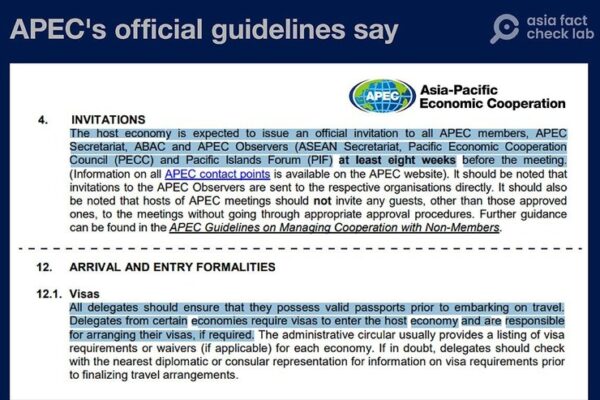
Australia and China: Besties again? It’s complicated
Australian Prime Minister Anthony Albanese wrapped up a three-day trip to China Tuesday, calling for the “full resumption of free and unimpeded trade” in a meeting with counterpart Li Qiang. The previous day, he held wide-ranging talks with Chinese President Xi Jinping, covering everything from Tasmanian Devils to New Zealand wine, not to mention improving relations with Australia’s largest two-way trading partner in goods and services. In the next step towards mending the previously fraught relations and stabilizing them, Albanese told reporters in Beijing on Tuesday that both sides have agreed on practical steps to advance dialogue in areas of common interests, including climate change, trade and people-to-people links. He also said he raised the plight of detained Australian writer Yang Hengjun – although he provided no details about his possible release – and human rights issues within China, in a move that highlighted the controversial nature of the trip in Australia. It was the first visit to China by an Australian prime minister since 2016, with the two sides visibly making an effort to reframe a relationship marred by disputes on trade, human rights and the COVID-19 pandemic during the tenure of the previous prime minister Scott Morrison. Australian Prime Minister Anthony Albanese delivers his speech at the opening ceremony of 6th China International Import Expo and the Hongqiao International Economic Forum in Shanghai on Sunday, Nov. 5, 2023. Credit: Jin Liwang/Xinhua via AP “It is wise for Labor to ‘stabilize’ the relationship with China,” Han Yang, a former Chinese diplomat turned political commentator, told Radio Free Asia. Albanese has been the leader of the Labor Party since 2019. “Australia is a middle power. It’s not in Australia’s interest to pick a quarrel with China, a superpower and its largest trading partner. ‘Cooperate where we can and disagree where we must’ is the right mantra to approach the relationship,” Yang said. Chinese misjudgment? Yang pointed out that Canberra did not make major strategic concessions, nor was it simply acting on the orders of the U.S. as some pro-China activists have argued. “It’s worth noting that Australia didn’t concede on any national security strategic goals. AUKUS is pushing on,” he said, referring to the trilateral security partnership between Australia, the United Kingdom, and the United States in the Indo-Pacific region. Australia’s ban on Huawei remains, as does its anti-foreign interference law. “What has changed is the tone, and China got the message. “That is why it welcomed Albo with a red carpet,” Yang said, referring to the Australian prime minister’s nickname. “If you look at the foreign ministry read out, it gives significantly more space to Xi’s speech compared to meetings with other second-tier power world leaders.” Another China watcher Gerry Groot, senior lecturer in Chinese Studies at the University of Adelaide, told RFA that whatever transpired from Albanese’s meetings with the Chinese leaders was driven more by Australia’s own policy than American interests. “It’s Chinese actions and demands in the South China Sea and South Pacific – Australia’s own backyard – which are so alarming to Australian politicians and defense planners,” Groot said. Australia’s Prime Minister Anthony Albanese visits the Temple of Heaven in Beijing, China, November 6, 2023. Credit: AAP Image/Lukas Coch via Reuters He said he believed that Chinese strategic analysts had miscalculated the effect of weaponizing economic relations with Australia to drive a wedge between the U.S. and Australia or force more concessions, as well as punish the previous Morrison government for its anti-China stance.. “The grudging concessions on some of these sanctions have come about because the cost to China’s reputation internationally was greater than anticipated and the impact on Australia in economic terms was less, while at the same time driving relations with America closer,” he said. Exiles push back Australia’s relationship with China is made more complex by the fact that it is home to probably tens of thousands of exiles from China who have fled due to human rights violations, ethnic or religious oppression, or personal safety. “I think Albo’s China visit is morally corrupt, economically miscalculated and contradictory to Australia‘s national security interests,” exiled Chinese artist Ba Diucao told RFA. “Morally it is unacceptable to keep doing business as normal with a regime like China amid ongoing genocide against millions of Uyghurs and [while it is] supporting Russia’s invasion in multiple ways. “Also, an Australian citizen Yang Hengjun is still in jail as a political hostage in China,” Ba Diucao added. The writer was detained in 2019 while visiting family and charged with espionage. Some Uyghurs and Tibetans living in Australia, such as Ramila Chanisheff, president of the Australian Uyghur Tangritagh Women’s Association, reject any deals with the “devil.” Chanisheff told RFA that she and Tibetan representatives had petitioned against Albanese’s visit to China in Canberra ahead of the trip. “I think it was when we learned that Albanese was taking 400 trade reps [representatives] to China that it hit us the hardest. One Tibetan colleague of mine said she found it triggering,” she said. “Of course, as Australians, we feel shame at what happened to indigenous Australian youth, forced education etc, but now we’re facilitating a massive state that is doing the same in East Turkestan and Tibet.” Australia’s Prime Minister Anthony Albanese meets with China’s President Xi Jinping at the Great Hall of the People in Beijing, China, November 6, 2023. Credit: AAP Image/Lukas Coch via Reuters Groot added, “While PM Albanese is beaming in his photos with CCP General Secretary Xi, we can only hope it is because the Chinese side has decided that more concessions to Australia are needed and perhaps that Yang Hengjun will be released shortly, rather than the grandeur of the occasion.” “In the meantime,” he added. “Gordon Ng [an Australian citizen charged with subversion] languishes in a Hong Kong jail on trumped up retrospective charges also.” Edited by Mike Firn and Elaine Chan.

